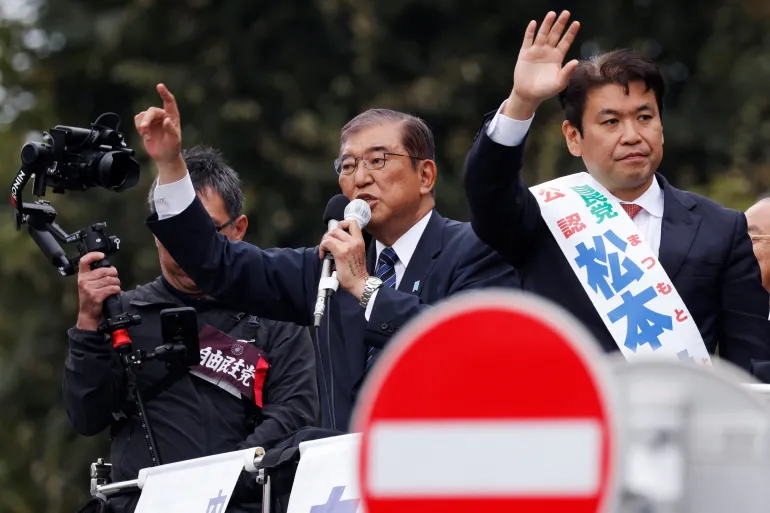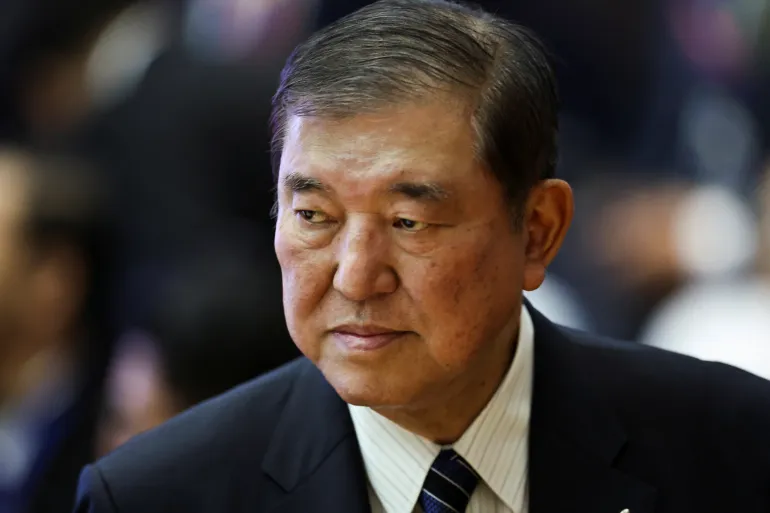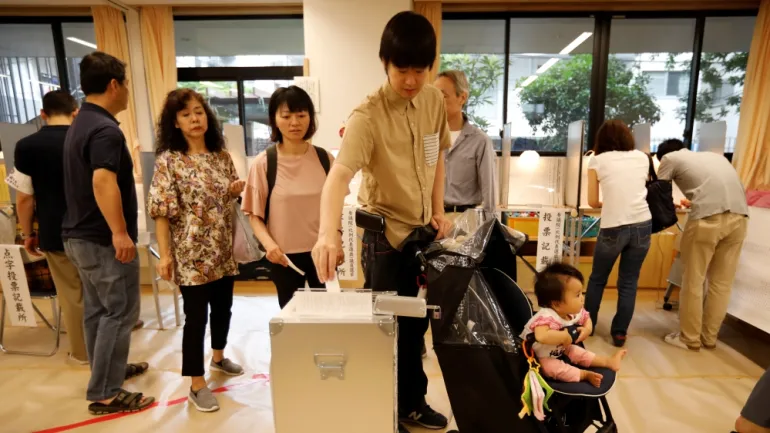Japan’s parliamentary election: Following the announcement of a quick election by incoming Prime Minister Shigeru Ishiba, Japanese citizens cast ballots. The result can make him stronger or make the ruling LDP even weaker.

In what is viewed as a trial for the nation’s new prime minister, Shigeru Ishiba, voters in Japan will cast ballots on Sunday to choose representatives for their House of Representatives.
Japan’s parliamentary election
The poll is anticipated to provide Ishiba’s ruling Liberal Democratic Party (LDP) with its most difficult electoral challenge in over ten years, as the party is mired in scandals and losing favor from the people.
In what is viewed as a trial for the nation’s new prime minister, Shigeru Ishiba, voters in Japan will cast ballots on Sunday to choose representatives for their House of Representatives.
Japan’s parliamentary election: The poll is anticipated to provide Ishiba’s ruling Liberal Democratic Party (LDP) with its most difficult electoral challenge in over ten years, as the party is mired in scandals and losing favor from the people.
Ishiba’s LDP, which has held a firm hold on power in Japan since 1955, is unlikely to lose the election, even though the outcome could be interpreted as a gauge of public support for or disapproval of Ishiba.
The Constitutional Democratic Party of Japan (CDPJ), the opposition party, is predicted to make considerable progress, but not enough to overthrow the current administration. They estimate that the LDP might lose a few dozen seats. In the worst situation, however, the party will probably still have the top spot in the ruling alliance.
What you should know about the election in Japan is as follows:
Who’s in the race?
Japan’s parliamentary election
The LDP has a majority in the lower house, which has 465 seats, and has dominated Japan for nearly the whole post-war period. Japan’s parliamentary election: Komeito , the longstanding coalition partner of the LDP, is supported by a sizable Buddhist community and has frequently provided vital campaign assistance to its political ally.
The LDP, which was founded in 1955 and is recognized for having spearheaded Japan’s post-World War II economic recovery, had two periods of instability: 1993–1994 and 2009–2012. Bribery scandals shook the party and its supporters in both instances.
The popularity of the LDP has now fallen once more.

What do polls say?
According to a recent poll conducted by the Asahi newspaper in Japan, the LDP would have trouble winning the election and could lose 50 of its current 247 parliamentary seats.
According to the Asahi survey, the main opposition CDPJ is gaining ground and could win up to 140 seats in the election, up from its present total of 98.
Japan’s parliamentary election: The incoming prime minister’s decision to call this early election will have backfired if it occurs.
Other polls also give the LDP bad news.
Just 30% of Japanese respondents to a March study had a positive opinion of the LDP, while 68% had a negative opinion, according to the Pew Research Center. However, the public’s perception of the opposition did not improve; according to Pew, only 29% of respondents had a favorable opinion of the CDPJ.
Even worse, according to Pew, only one-third of respondents were happy with “the way democracy was working” in Japan.
What’s at stake?
Shortly after succeeding departing and troubled LDP premier Fumio Kishida as prime minister on October 1, Ishiba dissolved parliament and called for an election.
In order to “catch the opposition off guard and secure a more solid mandate to pursue his policy agenda,” Ishiba called the election a year ahead of schedule, according to Craig Mark, an adjunct professor at Hosei University in Tokyo.
“After former Prime Minister Fumio Kishida’s unpopularity, he’s counting on the public to support a new face and image for his party,” Mark wrote in The Conversation magazine.
A significant corruption case involving unreported campaign funds had caused Kishida’s popularity to fall.
According to Mark, the opposition CDPJ also wants to boost its support by presenting “an image of reliability and stability.”
“Ishiba’s challenge in this early election is to be electorally successful enough to hold off his rivals from the conservative wing of the LDP, in addition to winning enough votes to keep the government,” Mark continued.
In light of recent scandals and growing economic concerns, the Asian Network for Free Elections (ANFREL) has called the election “crucial” for the LDP and Ishiba in terms of assessing public trust.
According to ANFREL, “it will be a crucial indicator of whether the LDP can regain public trust and maintain its dominance or if opposition parties can take advantage of public discontent.”
When will voting start?
Voting closes at 8 p.m. (11:00 gmt) on Sunday, with results starting to come in later in the evening and continuing into the early hours of the morning. Polling places open at 7 a.m. on Sunday (22:00 gmt Saturday).
Japan’s parliamentary election: According to Rob Fahey of The Waseda Institute for Advanced Study in Tokyo, vote counting in Japanese elections is often completed swiftly. The results will probably be made public on Sunday night, with just a select few seats—those that call for recounts or include other matters—being made public on Monday.

Why the election matters?
There is a risk of ongoing political instability in Japan during a period of economic uncertainty and a difficult foreign relations environment if the LDP is unable to maintain its current position in the ruling coalition. This would raise doubts about Ishiba’s leadership.
In particular, analysts highlight Japan’s strong defense capabilities in the face of escalating regional tensions with neighboring China, Russia, and North Korea.
However, Ishiba will improve his reputation within the party by delivering a successful election outcome and being acknowledged as the “prime minister who has the public’s support” if the anticipated loss of LDP seats “is as small as possible,” according to Kazuto Suzuki, associate fellow at Chatham House’s Asia-Pacific Programme.
Suzuki wrote in an analysis brief earlier this month that “Japan’s foreign and security policies, which were strengthened by the Abe and Kishida administrations, can continue to be bolstered if Ishiba can create a secure base of government.”
